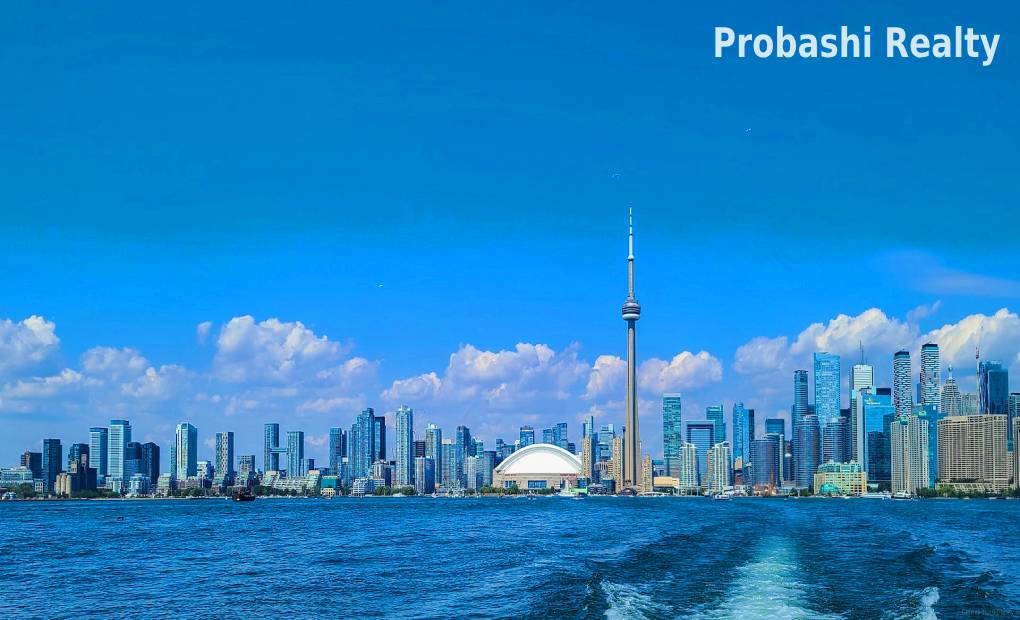Welcome Foreign Buyers!
Are you considering the prospect of entering the Canadian real estate market? To simplify your path, we have compiled a selection of resources and an informative guide detailing the essential regulations and guidelines for acquiring property in well-known Canadian provinces, including prominent areas like Ontario (City of Toronto), British Columbia (Vancouver), Alberta (Calgary), and Quebec (Montreal). It’s important to emphasize that foreign individuals have the right to own both condominiums and houses.
The process of buying real estate in Canada is similar to that in many other countries, but it has its unique aspects. Here’s an overview of the purchasing process in Canada:
-
Pre-Approval and Property Search: The first step in buying real estate in Canada is to assess your budget and financial readiness. It’s advisable to get pre-approved for a mortgage to determine your purchasing capacity. Once you have a clear understanding of your budget, you can start your property search. Consider factors like location, property type, size, and any specific features you desire. You can work with a real estate agent who will help you find suitable properties. In some provinces, such as British Columbia and Ontario, you’ll also need to factor in the land transfer tax when budgeting for your purchase.
-
Offer and Negotiation: When you find a property that aligns with your criteria, you can submit an offer to the seller. Your offer typically includes the purchase price, conditions (like home inspection and financing), and the closing date. The seller can accept, reject, or counter your offer. If the offer is accepted, the property is considered “under contract,” and you enter the conditional period. During this time, you’ll conduct inspections, secure financing, and finalize any due diligence. If everything proceeds as planned, you can proceed to the closing phase.
-
Closing and Title Transfer: The closing process involves finalizing the purchase. Your lawyer or notary will oversee the transaction, ensuring all necessary documents are signed, and the financial aspects are settled. You’ll pay the purchase price, closing costs, and any legal fees. The property title and mortgage (if applicable) are registered in your name. The keys are handed over, and you officially become the property owner. In Canada, real estate transactions are typically completed through a legal professional, like a lawyer or notary, who ensures that the transfer of funds, title, and legal documentation is conducted accurately and in compliance with Canadian real estate laws.
The Canadian real estate industry is presently witnessing a notable upsurge in activity, driven by a rising influx of foreign investors who hold a profound interest in these highly coveted urban centers and aim to invest in their real estate markets. This keen interest is unsurprising, considering the similar trends observed in other major international cities. Take Montreal, for example—acknowledged as Quebec’s commercial hub, a province distinguished primarily by its French-speaking community. Furthermore, Montreal holds the position as the second most populous city in Canada.
In parallel with other prominent Canadian urban centers, Montreal has achieved a remarkable distinction by earning the title of the world’s best city for students. It outshined illustrious counterparts like London, Berlin, Boston, and Tokyo in a comprehensive global ranking that encompassed 125 cities. Montreal’s enviable position is anchored in a range of factors, including the caliber of its universities (McGill University ranked 24th globally and secured the top spot in Canada according to the 2016 QS University Rankings). Additionally, the rich diversity of its student body—approximately 27% of students attending recognized universities such as McGill and UDEM are international—adds to its allure.
Our expertise extends to assisting numerous non-residents in acquiring properties across major Canadian cities like Toronto, Vancouver, Calgary, and Montreal. Throughout this process, we’ve encountered and effectively addressed various frequently asked questions from buyers and sellers hailing from diverse corners of the world. Our extensive portfolio includes collaborating with individuals relocating from countries such as China, Russia, Hong Kong, South Korea, South Asia, Africa, South America, the Middle East/Gulf countries, Europe, the USA, and beyond.
For the International / Non-Residents Ownership:
Canada extends a warm welcome to potential home buyers from all corners of the globe, without imposing any restrictions on the types or quantity of real estate or business ventures that can be acquired. However, it’s important to note that certain financial institutions may limit their financing options to a maximum of 2 or 3 properties per individual.
*** New Update: Effective as of January 1, 2023, the Prohibition on the Purchase of Residential Property by Non-Canadians Act (the “Act”) prevents non-Canadians from buying residential property in Canada for 2 years.
NEW: AMENDMENTS TO THE REGULATIONS March 27, 2023
The revisions, effective as of March 27, 2023, broaden the scope of exceptions, permitting Non-Canadians to acquire residential properties under specific conditions. These changes are encompassed within the Regulations Amending the Prohibition on the Purchase of Residential Property by Non-Canadians Regulations.
Amendments
1. Paragraph (a) of the definition control in section 1 of the Prohibition on the Purchase of Residential Property by Non-Canadians Regulations 1 is replaced by the following:
(a) direct or indirect ownership of shares or ownership interests of the corporation or entity representing 10% or more of the value of the equity in it, or carrying 10% or more of its voting rights; OR
2. Paragraph 2 (b) of the Regulations is replaced by the following:
(b) an entity formed under the laws of Canada or a province – whose shares or ownership interests are not listed on a stock exchange in Canada for which a designation under Section 262 of the Income Tax Act is in effect – and controlled by an entity referred to in paragraph (a) or controlled by a person referred to in paragraph (a), (b) or (c) of the definition non-Canadi‐ an in section 2 of the Act.
3. Subsection 3 (2) of the Regulations is repealed.
4. Subsection 4 (2) of the Regulations is amended by striking out “or” at the end of paragraph (c), by adding “or” at the end of paragraph (d) and by adding the following after paragraph (d):
(e) the acquisition by a non-Canadian of residential property for the purposes of development.
5. Subparagraphs 5 (b) (i) to (iii) of the Regulations are replaced by the following:
(i) they have 183 days or more of validity remaining on their work permit or work authorization on the date of purchase, and
(ii) they have not purchased more than one residential property.
Coming into Force: Registration
6. These Regulations come into force on the day on which they are registered.
Q. 1. Can non-Canadians acquire vacant land?
A. Yes, as of March 27, 2023, the prohibition does not apply to vacant land.
Q. 2. Can non-Canadians purchase residential property for development purposes?
A. Yes, as of March 27, 2023, the regulations provide an exception for non-Canadians purchasing residential property for purposes of development.
Q. 3. Does the prohibition apply to properties that are purely commercial in nature (e.g. office towers or grocery stores containing no dwelling units)?
A. No, the prohibition is not intended to apply to existing property that is purely commercial in nature.
*** Sources: PROTECTED B Confidence of the King’s Privy Council SOR
Requirements for Foreign or Non-Resident buyers of Montreal, Quebec Real Estate.
The rules regarding Non-Residents buying real estate in Canada are not actually related to citizenship – even Canadian citizens who don’t reside here for more than 180 days (or half of the year) are considered non-residents (and thus subject to the same rules).
Taxes Questions and Good news for International or Foreign Buyer in Quebec!
There are no additional taxes for non-residents when buying property in Montreal or in any other part of the province of Quebec.
Important Tax Info for Toronto Market: As of April 21, 2017, any individual who is not a Canadian citizen or permanent resident of Canada (including corporations and trusts) is subject to a Non-Resident Speculation Tax (NRST) of 15% of the purchase price (paid at closing) for properties purchased in Toronto, Ontario.
Important Tax Info for Vancouver Market: In July 2016, an introduced tax legislation initially mandated foreign entities (comprising foreign nationals) to make an extra payment of 15% upon acquiring residential properties in the Greater Vancouver area. In February 2018, the existing provincial administration further elevated this levy to 20% and extended its applicability to encompass additional regions, namely the Fraser Valley, Capital Regional District, Nanaimo Regional District, and the Central Okanagan.

Financing with a bank for Foreign or Non-Resident Buyers:
- Some banks are happy to provide mortgages to non-resident buyers
- We consider a non-resident to be a person who resides outside Canada or within Canada with a valid temporary resident Visa, valid work permit or valid study permit.
- Applications must be given with appropriate identification and documentation provided:
- A reference letter from their bank
- An employment letter verifying income in Canadian or US dollars
- Bank statements for three months
- A Canadian bank account is mandatory for payments and must be opened in person prior to the funding of the mortgage.
Note: If you don’t meet the eligibility requirements, you may still be able to get financing from other lenders who charge higher interest rates.
The buying process in Canada is well-regulated, and it’s essential to work with professionals like real estate agents, lawyers, or notaries to navigate the intricacies of the market and ensure a smooth and legally-compliant transaction. Local variations and regulations may apply, so it’s crucial to stay informed and seek expert advice during each step of the process.


